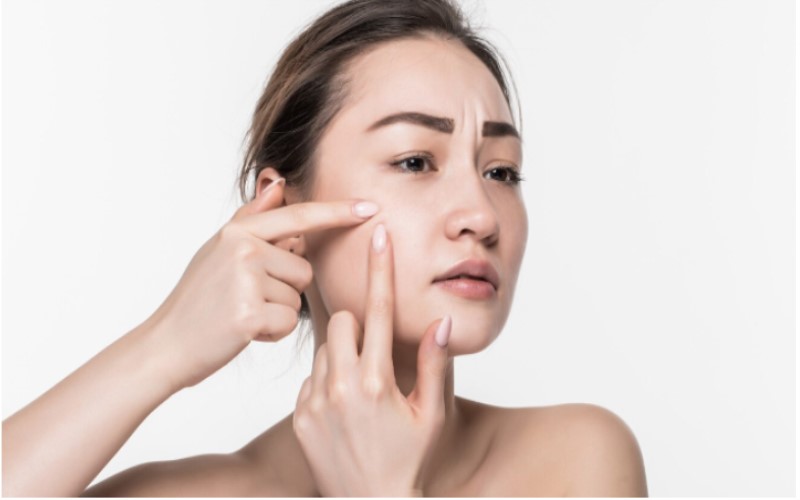Best Acne Treatment Services in Bangkok – Clear Skin Solutions
Acne is more than just a skin condition; it’s a pervasive issue that impacts millions of individuals across different age groups worldwide. This common dermatological disorder, characterized by pimples, blackheads, and cysts, can significantly affect one’s self-esteem and quality of life. Despite its prevalence, effective acne treatment Bangkok has remains a complex and multifaceted challenge. To navigate this intricate landscape, understanding the various treatment options, their mechanisms, and their potential outcomes is essential.
The Root Causes of Acne
To effectively address acne, it is crucial to first comprehend its underlying causes. Acne arises from the interplay of several factors: excess oil production, clogged hair follicles, bacterial proliferation, and inflammation. The sebaceous glands, which produce oil (sebum), can become overactive, leading to an accumulation of oil in the hair follicles. This oil, combined with dead skin cells, creates an environment conducive to bacterial growth, particularly by Propionibacterium acnes. The result is inflammation, which manifests as pimples, cysts, and other acne lesions.
Over-the-Counter Treatments
Over-the-counter (OTC) treatments offer a convenient first line of defense against acne. These products typically contain active ingredients that target oil production, bacteria, and inflammation. Among the most common OTC treatments are benzoyl peroxide, salicylic acid, and alpha hydroxy acids (AHAs).
Benzoyl peroxide works by reducing the presence of P. acnes bacteria and promoting the shedding of dead skin cells. It is available in various formulations, from gels to creams, and is known for its effectiveness in treating mild to moderate acne. However, benzoyl peroxide can be drying and may cause irritation, necessitating careful use and potentially the addition of a moisturizer.
Salicylic acid, a beta hydroxy acid (BHA), helps to exfoliate the skin and unclog pores. It is particularly beneficial for treating blackheads and whiteheads. Salicylic acid penetrates the pores to break down the keratin that clogs them, facilitating the removal of debris and reducing inflammation.
AHAs, such as glycolic acid, are often included in acne treatments for their exfoliating properties. They work on the skin’s surface to remove dead skin cells and promote cell turnover, which can help prevent pore blockages. AHAs are generally more suitable for individuals with dry or sensitive skin.
Prescription Medications
For more severe or persistent acne, prescription medications may be necessary. Dermatologists often prescribe topical or oral treatments depending on the acne’s severity and the patient’s overall health. Topical retinoids, such as tretinoin and adapalene, are commonly prescribed for their ability to normalize skin cell turnover and prevent pore clogging. These medications can significantly reduce acne lesions and are often used in conjunction with other treatments.
Oral antibiotics, such as doxycycline and minocycline, may be prescribed to manage inflammation and bacterial proliferation. These antibiotics help to reduce the bacterial load and alleviate inflammation, leading to improved skin clarity. However, long-term use of antibiotics is generally discouraged due to the risk of developing antibiotic resistance and potential side effects.
For women with acne that may be hormonally driven, oral contraceptives can be an effective treatment option. Certain birth control pills can regulate hormones and decrease the production of sebum, thereby reducing acne outbreaks. This approach is particularly useful for adult women and those with hormonal imbalances.

Advanced Therapies
In cases where traditional treatments are insufficient, advanced therapies offer alternative solutions. One such option is laser therapy, which targets the sebaceous glands and reduces oil production. Laser treatments, such as fractional laser and intense pulsed light (IPL), can also help improve acne scars and overall skin texture.
Chemical peels, involving the application of a chemical solution to the skin, can effectively treat acne by exfoliating the outer layers of the skin and reducing pore blockages. Peels can vary in strength and composition, and they are often tailored to the individual’s skin type and acne severity.
In more severe cases, dermatologists may recommend isotretinoin, a potent oral retinoid. Isotretinoin works by significantly reducing oil production, normalizing skin cell turnover, and decreasing inflammation. While highly effective, isotretinoin comes with potential side effects and requires close monitoring by a healthcare professional.
Complementary and Lifestyle Approaches
In addition to medical treatments, lifestyle and complementary approaches can play a significant role in managing acne. A balanced diet rich in fruits, vegetables, and whole grains can support overall skin health. Reducing the intake of high-glycemic foods and dairy products may also benefit some individuals by lowering insulin levels and decreasing inflammation.
Good skincare practices are crucial in managing acne. Regularly cleansing the skin with a gentle, non-comedogenic cleanser can help remove excess oil and prevent pore blockages. Avoiding excessive scrubbing and choosing non-irritating products can also prevent exacerbation of acne.
Stress management is another important aspect of acne care. Stress can trigger or worsen acne by affecting hormone levels and immune function. Incorporating stress-reducing activities such as exercise, meditation, and adequate sleep can contribute to improved skin health.
The Road Ahead
Acne treatment is a journey that requires a personalized approach. What works for one person may not work for another, and finding the right combination of treatments often involves trial and error. Consulting with a dermatologist can provide tailored recommendations and ensure that treatments are chosen based on the individual’s specific needs and skin type.
As research in dermatology advances, new treatments and therapies continue to emerge, offering hope for more effective and targeted acne management. Staying informed about the latest developments and maintaining a proactive approach to skincare can lead to significant improvements in acne control and overall skin health.
In conclusion, while acne remains a challenging condition, a comprehensive understanding of treatment options and a commitment to personalized care can help individuals achieve clearer, healthier skin. Whether through OTC remedies, prescription medications, advanced therapies, or lifestyle adjustments, addressing acne holistically can lead to effective and lasting results.






